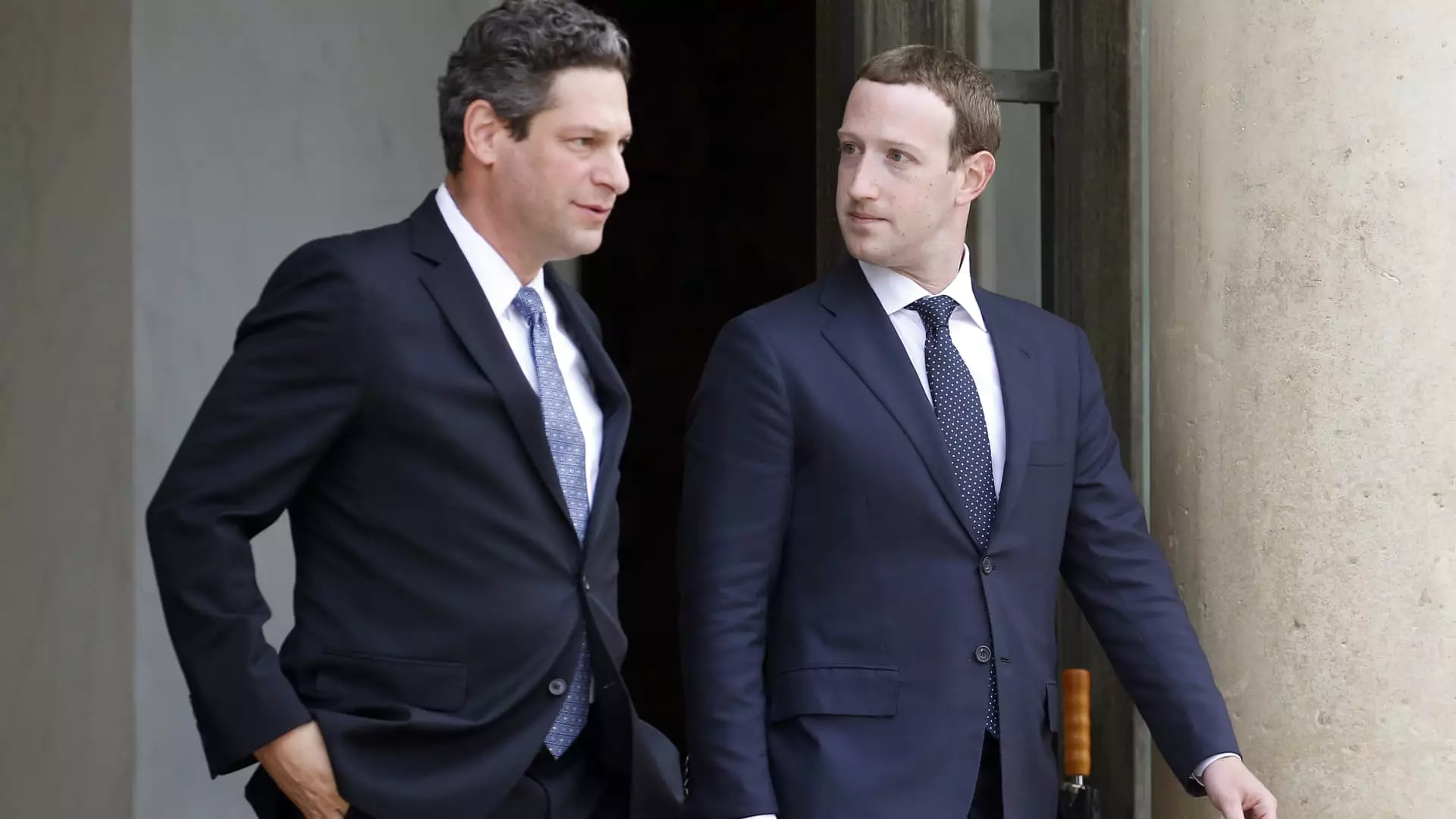In a notable shift within its ranks, Meta Platforms, the parent company of Facebook, has announced that Joel Kaplan will succeed Nick Clegg as the President of Global Affairs. This leadership change, which will take effect as the year unfolds, underscores the ongoing evolution of the technology giant as it aligns itself with the changing political climate in Washington. Kaplan, currently serving as Meta’s vice president for policy, will now take on the expanded title of Chief Global Affairs Officer. This transition comes in the wake of escalating scrutiny of technology companies and their role in global discourse, especially regarding political and social issues.
Nick Clegg, the former Deputy Prime Minister of the United Kingdom, has played an instrumental role at Meta since he joined the firm in 2018. Throughout his tenure, Clegg has been at the forefront of managing the company’s relationships with governments and regulatory bodies worldwide. Clegg’s decision to step down has caused speculation about the implications for Meta’s image and operations, especially given the intense scrutiny the company faced over its role in elections and social media dynamics. His tenure witnessed some of the most challenging periods in Facebook’s history, including the Cambridge Analytica scandal, which raised questions about user privacy and data management.
In a memo to staff, Clegg reflected on his years at Meta, noting the “significant resetting” of the relationship between tech companies and societal expectations in recent years. His acknowledgment of the pressures facing ‘big tech’ indicates a clear understanding of the complex landscape that is continually evolving, particularly in response to regulatory demands and public expectations. The fact that he is departing just before the inauguration of President-elect Donald Trump might suggest a strategic pivot as the company prepares for a new administration that could bring differing viewpoints on technology and regulation.
Coming from a background deeply rooted in policy and Republican party affiliations, Kaplan’s appointment indicates Meta’s intention to navigate the political waters with a more conservative strategy. Having previously served under former President George W. Bush, Kaplan’s experience may be leveraged to aid in establishing a more favorable rapport with the incoming administration. However, his close associations, such as his attendance at Brett Kavanaugh’s Supreme Court confirmation hearing, have already generated some controversy, raising questions about the entanglements that lie within the political fabric of social media companies.
As Kaplan transitions into this pivotal role, he is expected to work closely with David Ginsburg, the current vice president of global communications and public affairs. Together, they must balance a complex web of public perception, regulatory compliance, and internal policy formulation while steering Meta through its next chapters. Kaplan’s prior experience with Meta’s policy operations will be vital as he confronts ongoing criticisms regarding misinformation, election integrity, and content moderation.
As Meta seeks to redefine its role in both the tech landscape and the political arena, this leadership change could be seen as a necessary recalibration. Under Kaplan, the company may adopt a more nuanced approach to public policy, actively engaging with conservative lawmakers while still addressing the concerns of liberal commentators. This balancing act is essential for companies like Meta, which function not only as tech giants but also as key players in the political discourse that shapes societal norms.
CEO Mark Zuckerberg praised Clegg’s contributions during his tenure, stating that he has built a strong team to continue Meta’s mission. This change, however, raises questions about the future direction of Meta’s policies and engagement strategies. As the company grapples with its identity amid external pressures, it will be interesting to observe how Kaplan implements changes in approach and communication with stakeholders.
Ultimately, as the landscape of technology and politics continues to shift, Meta’s recent leadership shake-up reflects both resilience and adaptability to the societal demands placed upon it. The path ahead will be fraught with challenges but offers a potential for recalibration that may either reinforce or redefine the tech giant’s role on the global stage.

